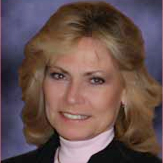
Alfred Adler (1938) in a late work titled “Social Interest: A Challenge to Mankind” discusses the subject of metaphysics where he integrates Jan Smuts’ evolutionary holism with the idea of teleology and community: “sub specie aeternitatus”. Adler argues his vision of society: “Social feeling means above all a struggle for a communal form that must be thought of as eternally applicable… when humanity has attained its goal of perfection… an ideal society amongst all mankind, the ultimate fulfillment of evolution.” (p. 275).
Adler presents a defense of metaphysics and spiritual growth which has played a vital role in my counseling approach. Adler stated, “I see no reason to be afraid of metaphysics; it has had a great influence on human life and development. We are not blessed with the possession of absolute truth; on that account we are compelled to form theories for ourselves about our future, about the results of our actions, etc.

Our idea of social feeling as the final form of humanity – of an imagined state in which all the problems of life are solved and all our relations to the external world rightly adjusted – is a regulative ideal, a goal that gives our direction. This goal of perfection must bear within it the goal of an ideal community, because all that we value in life, all that endures and continues to endure, is eternally the product of this social feeling.” (Adler, 1938, pp. 275-276).
This social feeling for Adler is Gemeinschaftsgefuehl, a community feeling whereby one feels they belong with others and have also developed an ecological connection with nature (plants, animals, the crust of this earth) and the cosmos as a whole, sub specie aeternitatus.
Although the relationship between the counselor and the counselee can be friendly it is not what we typically think of as friendship. The counselor is trained to maintain helpful boundaries that support the spiritual, mental and emotional healing process as the individual finds him/herself.
Adler’s theory also provides significant space for the dialectical humanist (modernist) and separately the postmodernist to explain the significance of community and ecology through differing lenses. This allows for the foundation of change to be applied to many cultures and belief systems.


Diana Smith, PhD, LPC-MH owns and operates Serenity Mental Health Services and is licensed by the National Board of Certified Counselors. License number is LPC-MH2025 and she follows the ethical guidelines described by the NBCC found at their web site www.nbcc.org/webethics2. Diana is a member of the National Board for Certified Counselors, Certification Number 43911. In addition, she is also a member of the American Counseling Association, Member ID# 5140627. Online counseling can help you right now. Research has made it clear that this manner of offering therapy is effective and those who’ve experienced it have said they would seek it out again.
Dr. Diana is an APA (American Psychological Association) EMDR (Eye Movement Desensitization and Reprocessing) approved Therapist in Training.